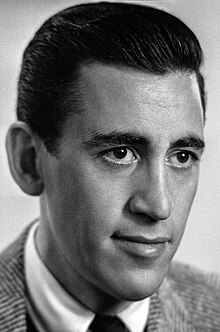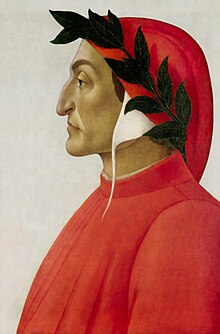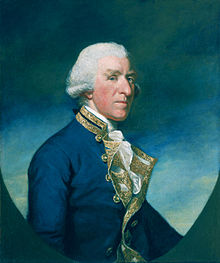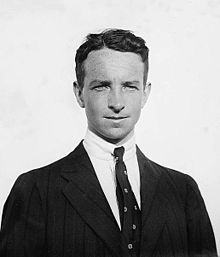January 27 is the 27th day of the year in the Gregorian calendar. There are 338 days remaining until the end of the year (339 in leap years).
Holidays
- Christian Feast Day:
- Saint Angela Merici
- Devota (Monaco)
- Sava (Serbia)
- January 27 (Eastern Orthodox liturgics)
- John Chrysostom, Doctor, Bishop of Constantinople, 407 CE (commemoration, Anglicanism)
- Liberation of the remaining inmates of Auschwitz-related observances:
- Holocaust Memorial Day (United Kingdom)
- International Holocaust Remembrance Day (International)
- Memorial Day or Il Giorno della Memoria (Italy)
In 98, Trajan succeeded his adoptive father Nerva as Roman emperor; under his rule the Roman Empire would reach its maximum extent.
In 661, The Rashidun Caliphate ends with death of Ali.
In 1142, Song Dynasty General Yue Fei is executed.
In 1186, Henry VI, the son and heir of the Holy Roman Emperor Frederick I, marries Constance of Sicily.
In 1302, Dante Alighieri, the poet and politician is exiled from Florence, Italy, where he served as one of six priors governing the city. He was a major Italian poet of the Middle Ages. His Divine Comedy, originally called Comedìa (modern Italian: Commedia) and later called Divina by Boccaccio, is widely considered the greatest literary work composed in the Italian language and a masterpiece of world literature
In 1343, Pope Clement VI issues the papal bull Unigenitus to justify the power of the pope and the use of indulgences. Nearly 200 years later, Martin Luther would protest this.
In 1593, The Vatican opens the seven-year trial of scholar Giordano Bruno.
In 1596, Francis Drake, English captain and explorer (b. 1540) died. He was an English sea captain, privateer, navigator, slaver, and politician of the Elizabethan era. Drake carried out the second circumnavigation of the world, from 1577 to 1580. Elizabeth I of England awarded Drake a knighthood in 1581. He was second-in-command of the English fleet against the Spanish Armada in 1588. He died of dysentery in January 1596 after unsuccessfully attacking San Juan, Puerto Rico. His exploits were legendary, making him a hero to the English but a pirate to the Spaniards to whom he was known as El Draque. King Philip II was said to have offered a reward of 20,000 ducats, about £4 million (US$6.5M) by modern standards, for his life.
In 1606, Gunpowder Plot: The trial of Guy Fawkes and other conspirators begins, ending with their execution on January 31. Guy Fawkes also known as Guido Fawkes, the name he adopted while fighting for the Spanish, was a member of a group of provincial English Catholics who planned the failed Gunpowder Plot of 1605.
In 1695, Mustafa II becomes the Ottoman sultan in Istanbul on the death of Ahmed II. Mustafa rules until his abdication in 1703.
In 1776, American Revolutionary War: Henry Knox‘s “noble train of artillery” arrives in Cambridge, Massachusetts.
In 1785, The University of Georgia is founded, the first public university in the United States.
In 1816, Samuel Hood, 1st Viscount Hood, English admiral (b. 1724) died. He was a British Admiral known particularly for his service in the American Revolutionary War and French Revolutionary Wars. He acted as a mentor to Horatio Nelson. A biographical notice of Hood by McArthur, his secretary during the Mediterranean command, appeared in the Naval Chronicle, vol. ii. Charnock’s Biogr. Nay. vi., Ralfe, Nav. Biog. i., may also be consulted. His correspondence during his command in America was published by the Navy Records Society. The history of his campaigns will be found in the historians of the wars in which he served: for the earlier years, Beatson’s Naval and Military Memoirs; for the later, James’s Naval History, vol. i., for the English side, and for the French, Troudes, Batailles navales de la France, ii. and iii., and Chevalier’s Histoire de la marine française pendant Ia guerre de l’indépendance américaine and Pendant Ia République. In 1792, Lieutenant William Broughton, sailing with the expedition of George Vancouver to the Northwest Coast of North America, named Mount Hood in present-day Oregon, and Hood’s Canal in present-day Washington, after Hood. Two US Naval ships were named after Mount Hood, which could be considered mildly ironic as Hood had served against the United States during the American Revolutionary War. Two of the three ships of the Royal Navy named HMS Hood were named after him as well, including HMS Hood (51), sunk by the Bismarck in 1941 during World War II.
In 1825, The U.S. Congress approves Indian Territory (in what is present-day Oklahoma), clearing the way for forced relocation of the Eastern Indians on the “Trail of Tears“.
In 1868, Boshin War: The Battle of Toba-Fushimi between forces of the Tokugawa shogunate and pro-Imperial factions begins, which will end in defeat for the shogunate, and is a pivotal point in the Meiji Restoration.
In 1869, Boshin War: Tokugawa rebels establish the Ezo Republic in Hokkaidō.
In 1870, The Kappa Alpha Theta fraternity is founded at DePauw University.
In 1888, The National Geographic Society is founded in Washington, D.C.
In 1909, The Young Left is founded in Norway.
In 1927, Ibn Saud takes the title of King of Nejd.
In 1939, First flight of the Lockheed P-38 Lightning.
In 1943, World War II: The VIII Bomber Command dispatched ninety-one B-17s and B-24s to attack the U-Boat construction yards at Wilhelmshaven, Germany. This was the first American bombing attack on Germany of the war.
In 1944, World War II: The 900-day Siege of Leningrad is lifted.
In 1945, World War II: The Red Army liberates the remained inmates of the Auschwitz-Birkenau concentration camp built by the Nazi Germans on the territory of Poland.
In 1951, Nuclear testing at the Nevada Test Site begins with a one-kiloton bomb dropped on Frenchman Flat.
In 1961, Soviet submarine S-80 sinks with all hands lost.
In 1967, Astronauts Gus Grissom, Edward White and Roger Chaffee are killed in a fire during a test of their Apollo 1 spacecraft at the Kennedy Space Center, Florida.
In 1967, The United States, United Kingdom, and Soviet Union sign the Outer Space Treaty in Washington, D.C., banning deployment of nuclear weapons in space, and limiting use of the Moon and other celestial bodies to peaceful purposes.
In 1973, The Paris Peace Accords officially end the Vietnam War. Colonel William Nolde is killed in action becoming the conflict’s last recorded American combat casualty.
In 1974, The Brisbane River breaches its banks causing the largest flood to affect the city of Brisbane in the 20th century.
In 1980, Through cooperation between the U.S. and Canadian governments, six American diplomats secretly escape hostilities in Iran in the culmination of the Canadian Caper.
In 1983, The pilot shaft of the Seikan Tunnel, the world’s longest sub-aqueous tunnel (53.85 km) between the Japanese islands of Honshū and Hokkaidō, breaks through.
In 1984, Pop singer Michael Jackson suffers second degree burns to his scalp during the filming of a Pepsi commercial in the Shrine Auditorium.
In 1989, Thomas Sopwith, English ice hockey player and pilot (b. 1888) died. He was an English aviation pioneer and yachtsman. Sopwith became interested in flying after seeing John Moisant flying the first cross-Channel passenger flight. His first flight was with Gustave Blondeau in a Farman at Brooklands. He soon taught himself to fly on a Howard Wright Avis monoplane and took to the air on his own for the first time on 22 October 1910. He crashed after travelling about 300 yards (275 m), but soon improved, and on 22 November was awarded Royal Aero Club Aviation Certificate No. 31, flying a Howard Wright 1910 Biplane. On 18 December 1910, Sopwith won a £4000 prize for the longest flight from England to the Continent in a British-built aeroplane, flying 169 miles (272 km) in 3 hours 40 minutes. He used the winnings to set up the Sopwith School of Flying at Brooklands. In June 1912 Sopwith with Fred Sigrist and others set up The Sopwith Aviation Company. The company produced more than 18,000 British World War I aircraft for the allied forces, including 5747 of the famous Sopwith Camel single-seat fighter. Sopwith was awarded the CBE in 1918. Bankrupted after the war by punitive anti-profiteering taxes, he re-entered the aviation business a few years later with a new firm named after his chief engineer and test pilot, Harry Hawker. Sopwith became chairman of the new firm, Hawker Aircraft. After the nationalization of what was by then Hawker Siddeley, he continued to work as a consultant to the company until 1980. He became a Knight Bachelor in 1953. Sopwith’s 100th birthday was marked by a flypast of military aircraft over his home. He died in Hampshire on 27 January 1989, aged 101. His grave and that of his wife Phyllis Brodie Sopwith can be found in the grounds of the 11th-century All Saints Church at Little Somborne near Winchester. His authorized biography is Pure Luck by Alan Bramson, with a foreword by the Prince of Wales (ISBN 1-85260-263-5).
In 1993, American-born sumo wrestler Akebono Tarō becomes the first foreigner to be promoted to the sport’s highest rank of yokozuna.
In 1996, In a military coup Colonel Ibrahim Baré Maïnassara deposes the first democratically elected president of Niger, Mahamane Ousmane.
In 1996, Germany first observes International Holocaust Remembrance Day.
In 2002, An explosion at a military storage facility in Lagos, Nigeria, kills at least 1,100 people and displaces over 20,000 others.
In 2003, The first selections for the National Recording Registry are announced by the Library of Congress.
In 2006, Western Union discontinues its Telegram and Commercial Messaging services.
In 2010, The 2009 Honduran constitutional crisis ends when Porfirio Lobo Sosa becomes the new President of Honduras.

In 2010, J. D. Salinger, American author (b. 1919) died. He was an American writer who won acclaim early in life. He led a very private life for more than a half-century. He published his final original work in 1965 and gave his last interview in 1980. Salinger was raised in Manhattan and began writing short stories while in secondary school. Several were published in Story magazine in the early 1940s before he began serving in World War II. In 1948, his critically acclaimed story “A Perfect Day for Bananafish” appeared in The New Yorker magazine, which became home to much of his later work. In 1951, his novel The Catcher in the Rye was an immediate popular success. His depiction of adolescent alienation and loss of innocence in the protagonist Holden Caulfield was influential, especially among adolescent readers. The novel remains widely read and controversial, selling around 250,000 copies a year.
In 2011, Arab Spring: The Yemeni Revolution begins as over 16,000 protestors demonstrate in Sana’a.
In 2013, 241 people die in a nightclub fire in the city of Santa Maria, Brazil.
In 2014, A divided Florida Supreme Court ruled Monday that voters will get to decide whether to make their state the first in the South to allow medical marijuana use. The justices said a proposed amendment to the state’s constitution meets all legal requirements, and can therefore go on the ballot in November. The issue could come up in the governor’s race: Incumbent Republican Gov. Rick Scott is opposed, while former Republican governor Charlie Crist, now a Democrat, is in favor. [Tampa Bay Times]

In 2014, Pete Seeger, American singer-songwriter and guitarist (b. 1919) dies. He was an American folk singer and activist and devout communist. A fixture on nationwide radio in the 1940s, he also had a string of hit records during the early 1950s as a member of the Weavers, most notably their recording of Lead Belly‘s “Goodnight, Irene“, which topped the charts for 13 weeks in 1950. Members of the Weavers were blacklisted during the McCarthy Era. In the 1960s, he re-emerged on the public scene as a prominent singer of protest music in support of international disarmament, civil rights, counterculture and environmental causes.
A prolific songwriter, his best-known songs include “Where Have All the Flowers Gone?” (with Joe Hickerson), “If I Had a Hammer (The Hammer Song)” (with Lee Hays of the Weavers), and “Turn! Turn! Turn!” (lyrics adapted from Ecclesiastes), which have been recorded by many artists both in and outside the folk revival movement and are sung throughout the world. “Flowers” was a hit recording for the Kingston Trio (1962); Marlene Dietrich, who recorded it in English, German and French (1962); and Johnny Rivers (1965). “If I Had a Hammer” was a hit for Peter, Paul & Mary (1962) and Trini Lopez (1963), while the Byrds had a number one hit with “Turn! Turn! Turn!” in 1965.
Seeger was one of the folksingers most responsible for popularizing the spiritual “We Shall Overcome” (also recorded by Joan Baez and many other singer-activists) that became the acknowledged anthem of the 1960s American Civil Rights Movement, soon after folk singer and activist Guy Carawan introduced it at the founding meeting of the Student Nonviolent Coordinating Committee (SNCC) in 1960. In the PBS American Masters episode “Pete Seeger: The Power of Song“, Seeger stated it was he who changed the lyric from the traditional “We will overcome” to the more singable “We shall overcome”.
In 2015, Indiana Gov. Mike Pence (R) announced that his state will accept the Affordable Care Act’s expansion of Medicaid, after gaining some concessions from the Obama administration. Under the deal, all new Medicaid enrollees will have to pay for part of their monthly premium, from $1 to $26 for single adults, depending on income, and they’ll lose coverage for six months if they fall behind. The deal was thought to pave the way for a handful of on-the-fence GOP-led states to expand Medicaid coverage, too. Did not happen! [The Wall Street Journal]
In 2015, Wisconsin Gov. Scott Walker (R) filed papers to establish a committee that will be able to build a political and fundraising network, the first major step toward exploring a 2016 presidential bid. The committee, Our American Revival, announced its creation on Tuesday just days after Walker visited Iowa, which holds early caucuses that are the first prize of the primary season. Former Florida governor Jeb Bush, New Jersey Gov. Chris Christie, and 2012 GOP nominee Mitt Romney have also signaled that they might run for the GOP nomination. [Milwaukee Journal-Sentinel]





